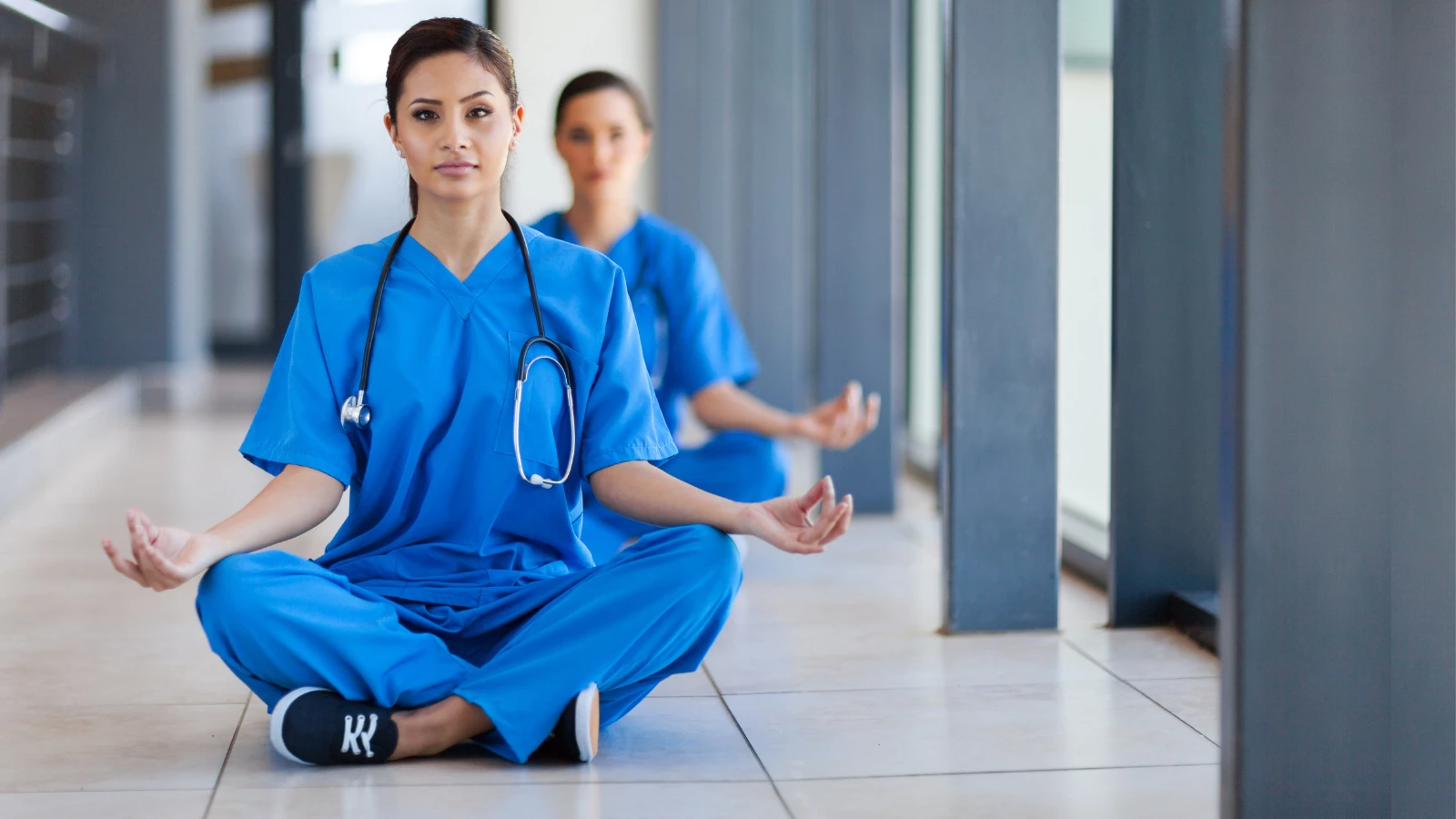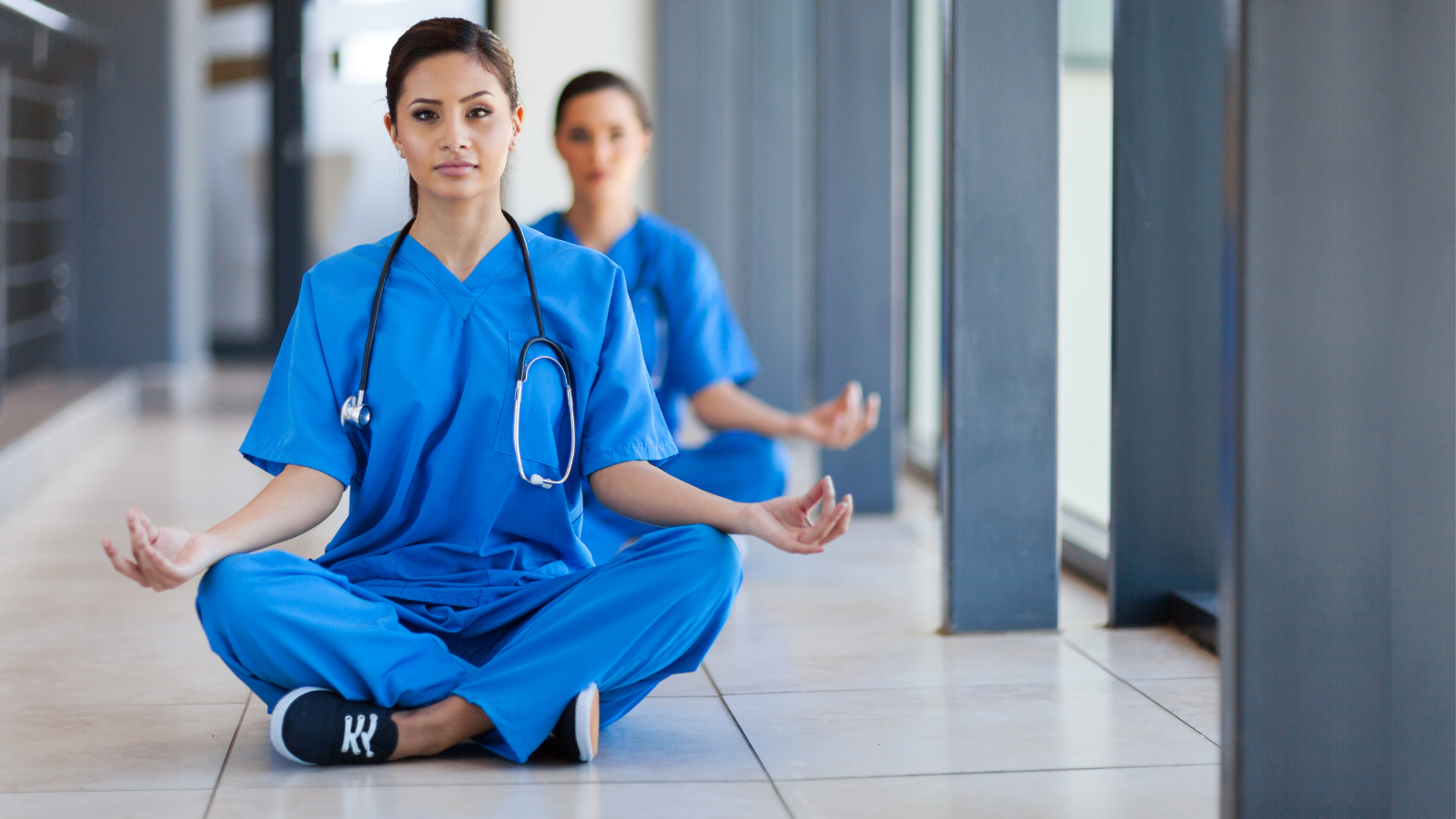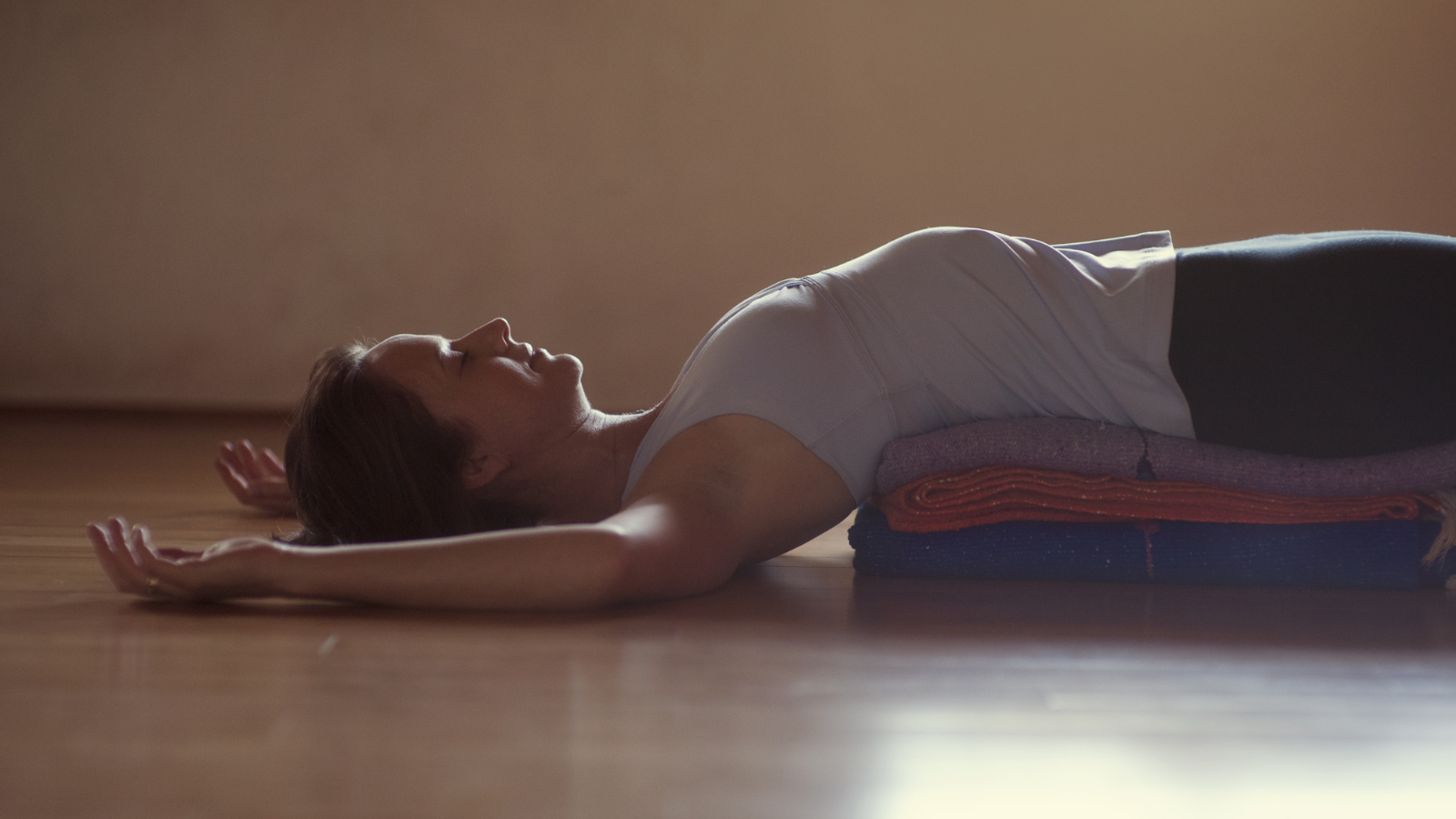The Changing Yoga Profession

A few days ago The New York Times offered a crumb of hope, reporting that we may actually be seeing a ray of light at the end of the Delta tunnel. Still, we have a long road ahead.
Life has changed and for some folks that change has been both dramatic and traumatic. From my vantage point as a yoga therapist, trainer, and advocate for the profession, I believe the most salient, interrelated questions are:
- How do we adapt and keep the yoga profession alive?
- How can we best be of service?
I want to discuss some promising research and offer a few thoughts about how we might move forward by re-conceptualizing the role of the yoga professional during these difficult times.
COVID and the Yoga Profession

In the early days of the pandemic, there was a lot of scrambling and questioning. Could yoga and meditation be used preventatively? Would yoga practitioners exhibit increased immunity because of their practice? Can yoga be used to treat COVID? Can yoga be used to treat COVID’s long haul?
While it’s no substitute for standard of care, yoga and meditation practice may be an important adjunctive treatment for COVID-19 because of their immune-boosting potential as this article argues.
Currently, some medical folks are suggesting that yoga may be helpful for the disease sequelae (long-haul COVID). The International Association of Yoga Therapists (IAYT) is working on an initiative to support yoga therapists who are helping folks with long-haul COVID. This is great stuff. The yoga profession has lots to offer.
While the pandemic is killing people and/or wreaking havoc on the health of populations and the health care system (not to mention every other system), the mental health/trauma repercussions may prove to be an even greater fallout.
The Pandemic is a Global Trauma
Last February, Ibrahim Kira at the Center for Cumulative Trauma Studies in Georgia, published a paper called “Taxonomy of Stressors and Traumas.” Kira’s work highlights the shifting perspective on trauma. “COVID-19 challenges the current paradigms of traumatic stress,” he wrote. “There is a need for a fresh critical outlook in the field from a dynamic developmental and life span perspective.” Kira’s work suggests that a trauma (like a pandemic) loaded on top of previous traumas (like adverse childhood experiences (ACEs) or developmental traumas) has a cumulative, catalytic, and of course, deleterious effect.

This kind of thinking can help broaden and deepen the general understanding of trauma and get help to the people who need it. A study published recently suggests that yoga may be helpful for front-line health care workers who are experiencing the trauma firsthand on a regular basis. They are dealing with re-traumatization and vicarious trauma (not to mention the terror of being repeatedly exposed) and, as you’ve heard in the news, there’s an understandable amount of burnout and workforce shortages right now.
How the Healthcare Profession Can Benefit from the Yoga Profession
Health care workers as well as lots of other people need mental health support. A study conducted earlier this year suggests that yoga is better than aerobic exercise for coping with anxiety. (1)
How often have you heard someone say that their doctor told them to exercise more in order to cope with their stress and anxiety? Well, yoga actually beats the gym class according to this study. How do we get medical professionals to recommend it more often? And to understand the difference between what we do as nervous system-oriented yoga professionals versus fitness-oriented ones?
I’ve found a few yoga and COVID studies in the works, like this one which is looking at whether yoga and meditation taught online can support those with heightening anxiety brought on by COVID. (2) Another one from Italy looks at whether pranayama can support those with COVID, in terms of breathing, regulating the nervous system, and also the mental health challenges associated with COVID. (3) AYUSH, India’s Complementary and Integrative medicine ministry has been particularly aggressive in sponsoring research on yoga for COVID.
The Future of COVID and the Yoga Profession

I have no doubt that over the next few months (and years) we’ll see an increasing number of promising studies about how yoga can support those with COVID-19 or with anxiety about it, or grief from losing loved ones to it, or depression in response to the way it’s destroyed lives. Yoga just makes so much sense right now. Researchers are asking a lot of good questions.
And because of this emerging research, in the coming years, there will be an increasing need for well-trained, experienced yoga professionals.
A Yoga Profession Do-Over
We can stop pigeonholing the profession (or rather allowing ourselves to be pigeonholed) as a branch of the fitness industry and start thinking about what we do as prevention, recovery, wellness, and lifestyle intervention. Sure, the fitness yoga folks can stay in their box if they want to, no worries. But for those of us who want a different, more pliable, more expandable box for yoga, this might be a watershed moment.
We can support patients, caregivers, healthcare workers, and anyone who is suffering from the current and aftereffects of this global trauma. This kind of health promotion application is really where the promise of yoga practice shines. That’s the big picture stuff.
I would suggest that grassroots initiatives that connect yoga professionals to local healthcare professionals and institutions are the next step. And those of you who want to help me on the advocacy side of things, let me know. We’re going to need a lot of help pushing this juggernaut.
Let’s get to work!
Also, read...
Book Review: Yoga for Times of Change
Practices and Meditations for Moving Through Stress, Anxiety, Grief & Life’s Transitions
Yoga Revolution: A Call for Social Justice On and Off the Mat (A Book Review)
Jan 06 – Lacey Gibson Ramirez MSc., RYT-500, ERYT-200, RPYT, CFSD
The Changing Yoga Profession
Oct 22 – Kristine Kaoverii Weber, MA, C-IAYT, eRYT500, YACEP
Related courses
Keys to Effective Yoga Teaching: The Most Important Takeaways from a Life of Teaching
With Judith Hanson Lasater
Yoga and Detoxification: Tips for Stimulating Lymphatic Health
With Lisa Levitt Gainsley
Free Download! Sacred Teaching, Simple Truths: Five Decades of Yoga Wisdom
With Judith Hanson Lasater
Reprinted with permission from Subtle Yoga/Kristine Kaoverii Weber.

 Committed to the widespread adoption of yoga as a population health strategy, Kristine Kaoverii Weber, MA, C-IAYT, eRYT500, YACEP has been studying yoga and holistic healing for nearly 30 years advocating, speaking, and teaching about yoga since 1995, and training educators since 2003. Her organization, Subtle® Health, LLC, provides holistic, mind-body training, education, and clinical services with the mission of enhancing community health infrastructure. She is the director of the Subtle® Yoga Teacher Training for Behavioral Health Professionals program at MAHEC in Asheville, NC, presents workshops and trainings internationally, and is frequently invited to speak about yoga at health care conferences. After completing her BA and MA at Georgetown University, Kristine trained extensively in many styles of yoga, including Viniyoga, as well as in Asian bodywork therapy and homeopathy.
Committed to the widespread adoption of yoga as a population health strategy, Kristine Kaoverii Weber, MA, C-IAYT, eRYT500, YACEP has been studying yoga and holistic healing for nearly 30 years advocating, speaking, and teaching about yoga since 1995, and training educators since 2003. Her organization, Subtle® Health, LLC, provides holistic, mind-body training, education, and clinical services with the mission of enhancing community health infrastructure. She is the director of the Subtle® Yoga Teacher Training for Behavioral Health Professionals program at MAHEC in Asheville, NC, presents workshops and trainings internationally, and is frequently invited to speak about yoga at health care conferences. After completing her BA and MA at Georgetown University, Kristine trained extensively in many styles of yoga, including Viniyoga, as well as in Asian bodywork therapy and homeopathy.
She is the author of The Complete Self Massage Workbook and has published articles in the International Association of Yoga Therapist’s journal, Yoga Therapy in Practice, and other wellness publications. Her work has been featured in Redbook, BodySense, Women’s World, Natural Health, and Lifetime TV.
Resources
- https://www.tandfonline.com/doi/abs/10.1080/01612840.2021.1965269?scroll=top&needAccess=true&journalCode=imhn20
- https://research.columbia.edu/covid/mapping/meditationyoga
- https://clinicaltrials.gov/ct2/show/NCT04413747
Recent articles
Yoga 2.0: Ground and Lengthen With Dandasana (Staff Pose) at the Wall
Nov 29 – Leah Sugerman, E-RYT 500, YACEP
Moving: Lessons in Aparigraha
Nov 27 – Kristine Kaoverii Weber, MA, C-IAYT, eRYT500, YACEP
Is Knee Hyperextension Bad? 4 Triangle Pose Hacks for Hyperextended Knees
Nov 26 – Jennie Cohen, E-RYT 500, YACEP
Categories
Upcoming courses
Keys to Effective Yoga Teaching: The Most Important Takeaways from a Life of Teaching
With Judith Hanson Lasater
Yoga and Detoxification: Tips for Stimulating Lymphatic Health
With Lisa Levitt Gainsley
Recent articles
Almost there...
Sorry, we couldn't find anything...
Pose Library
Yoga 2.0: Ground and Lengthen With Dandasana (Staff Pose) at the Wall
On the surface level, Dandasana (Staff Pose) is a really simple yoga posture. It…
Nov 29 – Leah Sugerman, E-RYT 500, YACEP
Stress Relief
Moving: Lessons in Aparigraha
Yesterday morning, while I was working in my office writing an article, my husband…
Nov 27 – Kristine Kaoverii Weber, MA, C-IAYT, eRYT500, YACEP
Yoga Practice Tips
Is Knee Hyperextension Bad? 4 Triangle Pose Hacks for Hyperextended Knees
We’re often advised to avoid knee hyperextension in yoga. We hear cues like “micro…
Nov 26 – Jennie Cohen, E-RYT 500, YACEP


